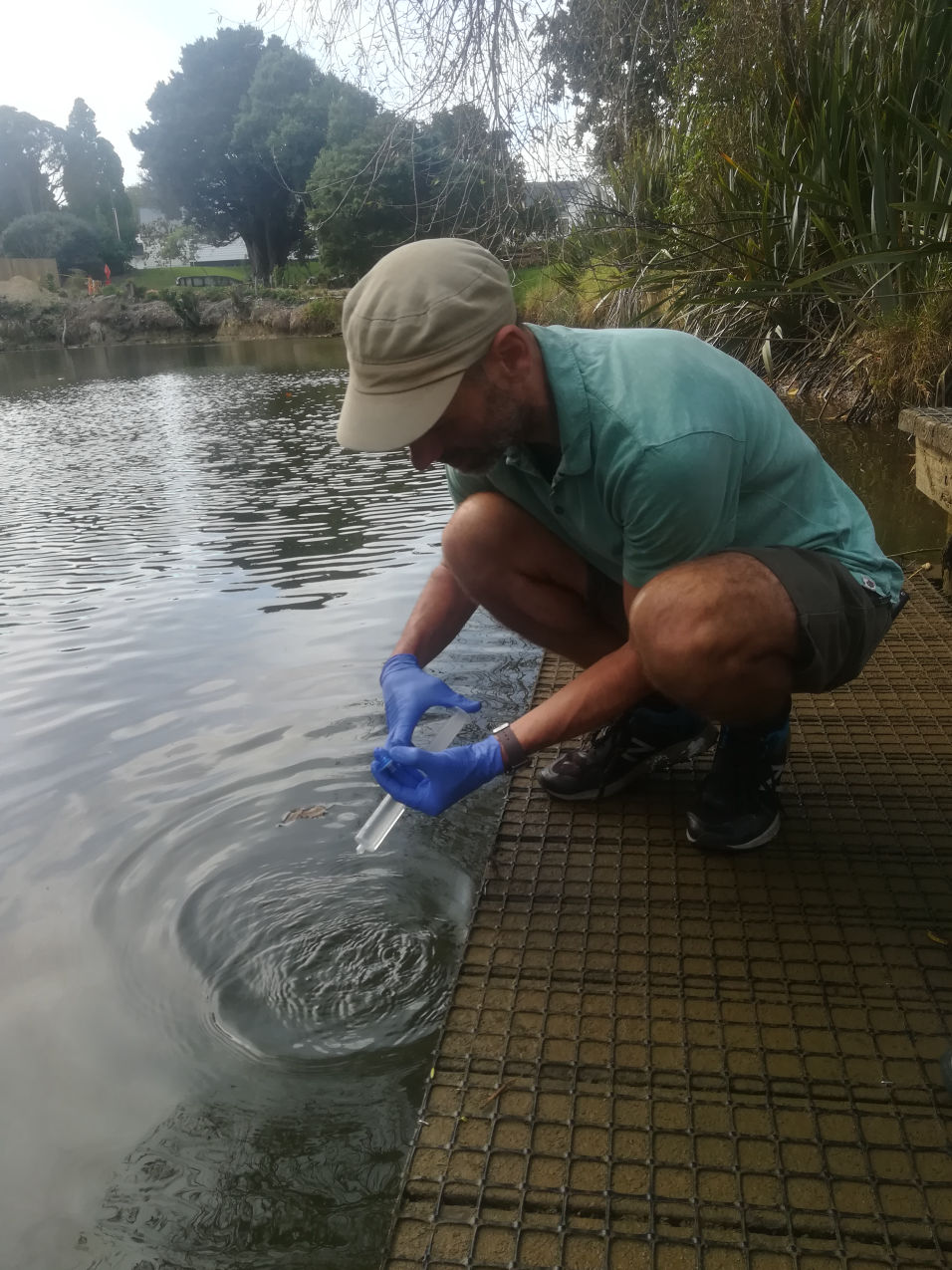
Eco-detectives at work: What’s in our local Waipu rivers?
To better understand the health of our local rivers the Waipu Waters team, part of the Piroa Conservation Trust, have been using some new technology called eDNA.
With just a cup of water, eDNA allows the identification of a wide range of species, ranging from fish and macroinvertebrates to birds, mammals, reptiles, amphibians, plants, fungi, bacteria and other organisms. This cost-effective method gives valuable insights into species across time and space, helping to monitor biosecurity threats and understand fluctuations in the health of waterways.
Local sites selected for sampling were on the Ahuroa, Mill Brook, Waihoihoi, Waionehu and Pohuenui/North Rivers. The tests were taken after a 10-day dry spell following heavy rain weeks prior. Each site was reasonably clear, except for the North River site, which was quite turbid. Eels were observed at all sites except North River.
Here are some key results:
• DNA from various native fish species were found in all of the sites, including inanga, redfin bully, common bully, giant bully, common smelt, long and shortfin eel, banded kokopu and, torrent fish.
• Snapper DNA was found in the Waionehu stream sample.
• Invasive species such as koi carp, rudd, and tench were not detected in our catchments.
• Diverse invertebrates and snails were identified, along with the DNA from humans, and introduced species like peacock, cattle, rats and possum.
Water quality was assessed using a Stream Health indicator called the Taxon-Independent Community Index (TICI). This index ranges from 60 to 140. Higher scores indicate better stream health. Four of the rivers had a poor rating, and North River received a very poor rating.
Despite poor or very poor water quality in the Waipu River catchment, the eDNA tests revealed an ecosystem with a mix of native and introduced species. These findings establish a crucial baseline for monitoring these rivers in the coming decades. To view the test sites and results for all the rivers sampled, visit the Wilderlab interactive map and enter the job number 603734.
Waipu Waters and Northland Regional Council will continue a regular water quality monitoring programme using other tests and methods to give a broader understanding of changes in water quality over time.
Catchment groups are among the initiatives being led by Piroa Conservation Trust and Waipu Waters to support landowners along the rivers to look at impacts of land use and come up with actions that will lead to improved water quality and abundant freshwater habitat over time. Among the actions being carried out are riparian fencing and planting, turning boggy areas into wetlands and nurseries for inanga(whitebait) and ways to address erosion and sediment flows.
To find out more about joining a catchment group in Bream Bay or information on water quality, contact Catchment Coordinator Graham Matthews on 027 432 1016.